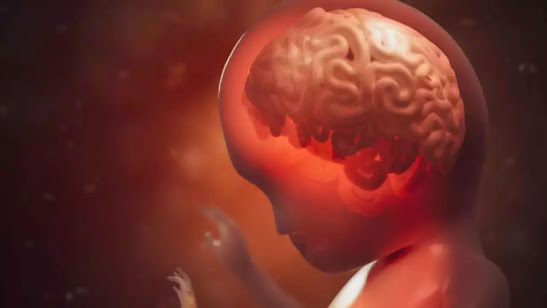Role of Thyroid Hormones in Brain Development: How Do They Work For Fetus Development
Thyroid hormone is an essential hormone that affects many aspects of your body. If you are pregnant and have too little or too much thyroid hormone, it can affect the fetus and its brain development. According to experts, a deficiency of thyroid hormone during fetal development can cause mental retardation and other neurological impairments. Read on to know in detail.
Thyroid hormones are among the most important hormones that control the speed of your body’s metabolism. However, in infants, the thyroid hormone is highly critical for their brain development. Your thyroid, a small, butterfly-shaped gland located at the front of your neck under your skin, makes and releases thyroid hormone—a crucial part of your endocrine system.
Experts say the thyroid hormone acts as a vital regulator for various processes like neuron proliferation, migration, differentiation, and synaptogenesis. “Thyroid hormones provide signals for the differentiation and maturation of various brain cells and this process can last up to two years post-delivery,” Dr. B. Sahithi Priya, M.S., M Consultant Endocrine and Breast Surgeon, Ruby Hall Clinic, told Times Now.
According to Dr. Priya, thyroid receptors help in areas like cognition and visual and hearing function. These hormones bind to specific receptors in these sites and stimulate various genes required for these functions.
While there are many conditions that develop due to a deficiency of thyroid hormone, some of them can be critical. “Thyroid hormone deficiency during fetal development can lead to mental retardation and other neurological impairments,”
Statistics say females are about five to eight times more likely than males to have a deficiency, leading to other conditions like:
- Hypothyroidism
- Hashimoto's disease
- Hyperthyroidism
- Grave's disease
- Thyroiditis or thyroid inflammation
To avoid such serious complications, timely thyroid hormone analysis and adequate treatment are required during pregnancy. “In women diagnosed with gestational hypothyroidism, a monthly thyroid profile should be done, and the thyroxine dose should be titrated as per the requirement,” she said.
When should an expectant mother see the doctor?
Abnormal thyroid hormone levels usually cause noticeable symptoms. Since thyroid hormone is responsible for controlling the speed of your metabolism, too much thyroid hormone can make it faster than normal, and too little thyroid hormone can slow it down. These imbalances cause certain symptoms, including:
- Unexplained weight gain or weight loss
- Slow or fast heart rate
- Intolerance to cold or heat
- Dry or moist skin
Visit our website: cognitivescientist.org Nomination now: cognitivescientist.org/award-nomination/?




Comments
Post a Comment